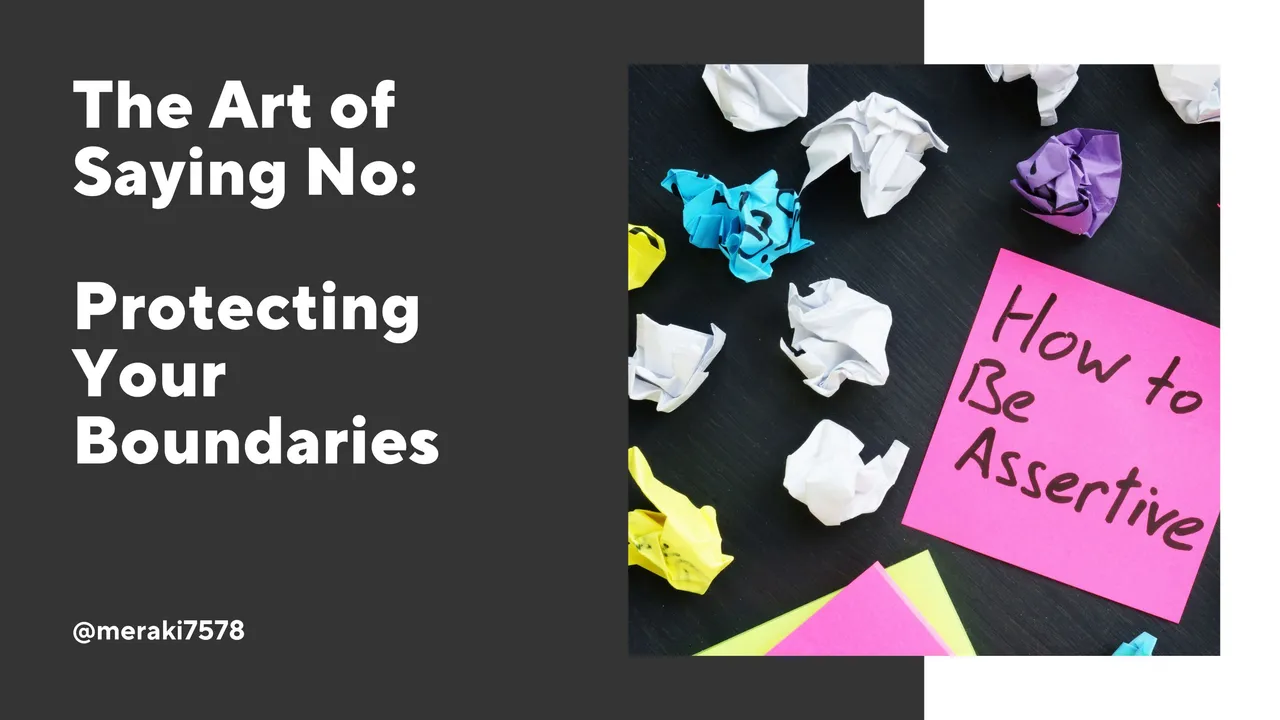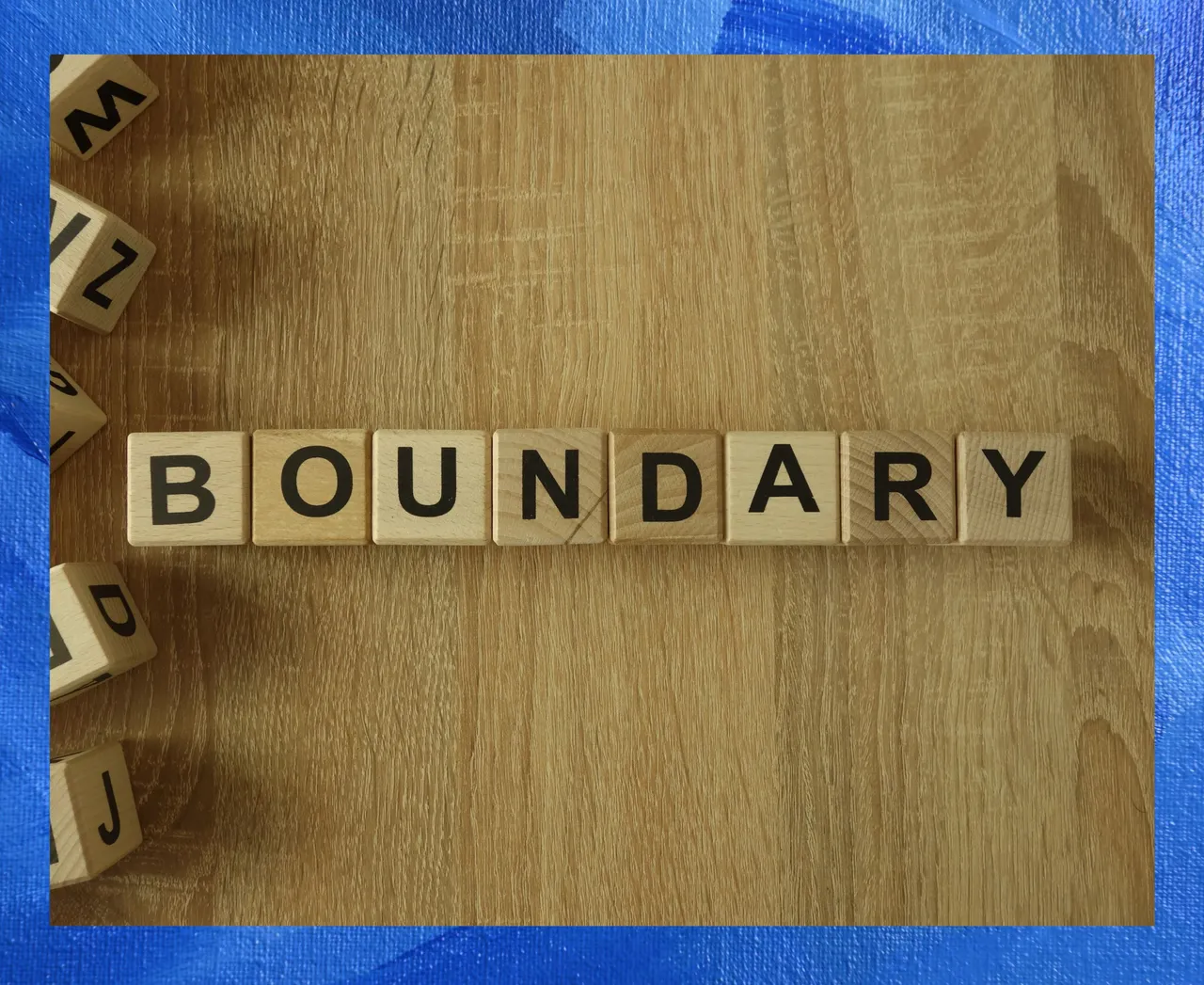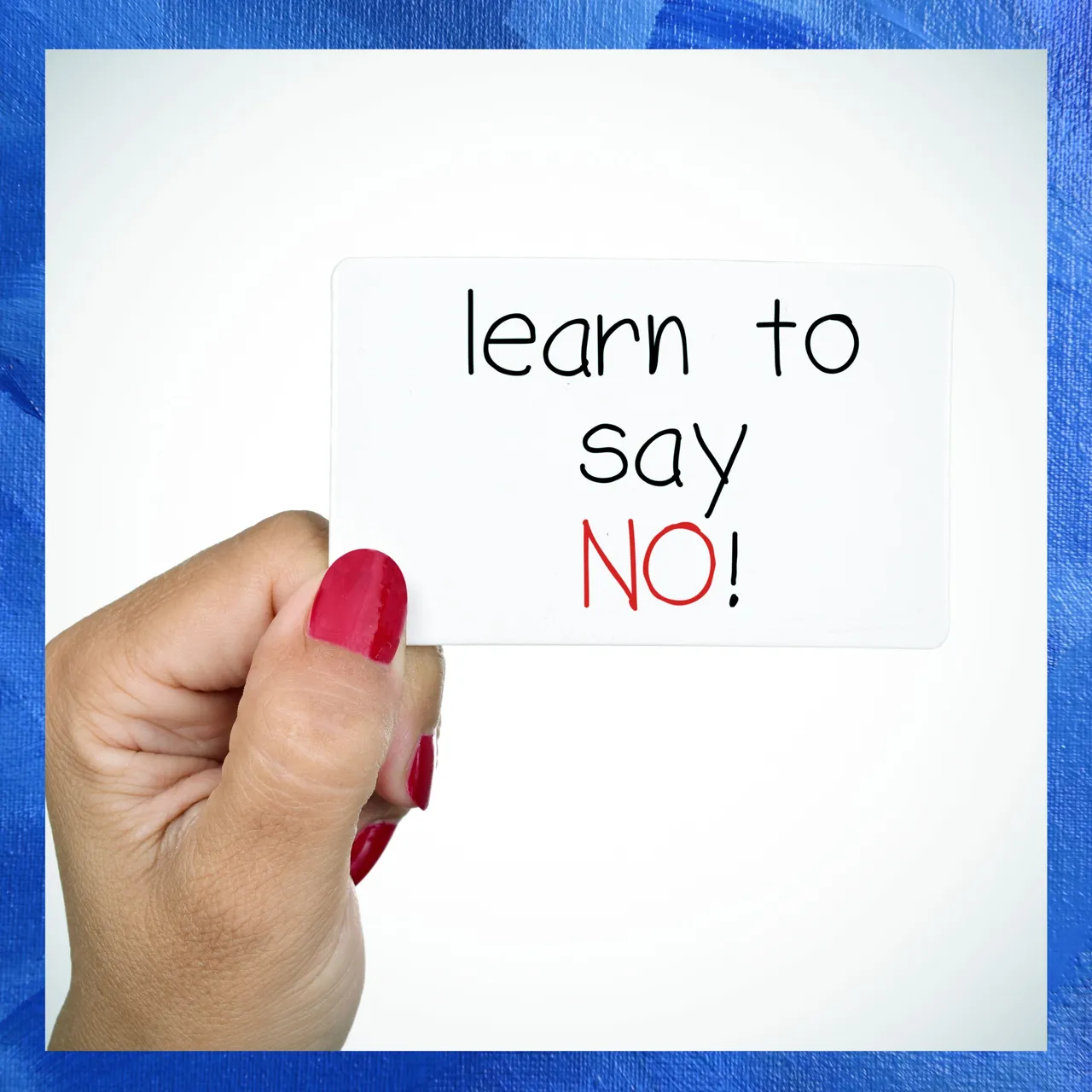
"Can I go ahead of you? I have to pick up my kid from school in a minute!"
Before you can answer, your place in line has already been taken.
Or you are about to go home when a colleague suddenly asks, "Could you just..."
And at the hairdresser's, you asked for dark paint, not red.
Oh yes, while you've just said you're watching your weight, there's still a piece of cake before you nosing: "Don't be so unsociable!"
Sound familiar? These are all examples of situations where your boundaries are being messed with.
Sometimes, you only realize what happened once an adequate response has passed.
Other times, you respond immediately, but your tone is so sharp that the other person gets defensive.
It would be nice to guard your boundaries better and counteract without becoming prickly...

I learned that years ago at an assertiveness course.
I've always found it challenging to say "No" and state my boundaries.
But why is it so difficult to set boundaries?
For me, it was because I was too social and friendly.
However, it can also be traced back to prehistoric times when people lived in groups.
If you fell outside your group, you were doomed.
So, it was essential to be very alert to social signs.
We are still hyper-aware of how we are in the group, how others see us, and whether we are losing face.
I, too, wanted to be accepted by those around me and longed for their approval.
No matter how small, rejections are more complicated than we want to admit when it comes to rejection from people close to us.
Many studies show that rejection hurts everyone, even if you say so boldly that it doesn't hurt you.

So often, you choose yes when you want to say no.
Because it feels nicer to say yes than no.
Doing something good for someone else activates the reward system in the brain.
This then produces dopamine, a substance that causes a wave of happiness.
This pleasant feeling is addictive, so you agree to do what is asked of you even more often.
The more often you do this, the harder it becomes to feel your limits anymore.
But you also have your own needs, which is where the tension lies.
For example, you may not desire or have the time to help your friend move heavy furniture, but they may think you are antisocial.
And recently that friend also helped you. True, that was less work, but still...
You then give in for fear of hurting the other person or appearing as a bogeyman.

Women suffer more from the disease to please, the tendency to put other people's wishes above their own.
Parenting also contributes to this. Children are expected to follow specific rules.
It's logical, but those rules are diffuse and different for everyone. Girls are expected to be more kind, considerate, and obedient than boys.
Not surprisingly, many women want to be liked and often feel guilty if they refuse something.

By doing all kinds of invisible chores that are automatically pushed in their direction.
Like cleaning the dishwasher at work, going around with coffee, buying a card for that sick colleague, or organizing a farewell party.
In a mixed group of colleagues, women are more likely to raise their finger if something needs to be done. In school, you see that automatism, too.
Throughout my elementary school career, I rarely see fathers volunteering for extra tasks.
Mothers often go on field trips, attend parent meetings, or help at the Christmas celebration.
Bizarre. As if women could do these tasks better.

That's the tricky thing: boundaries are never unambiguous. They differ per situation, depending on the moment, your mood, or the person who asks you.
The busier you are, the less insight you have into your limits, even though they are extra crucial at that time.
Getting to know yourself better in that regard. Look back to situations where your boundaries were crossed, where you said 'yes' while inside, you were screaming 'no.'
You can learn from those experiences. Often, you cross into recurring situations or with the same people repeatedly.
By the way, your body also tells you when your boundary is about to be crossed.
Then your breath quickens, your voice goes wild, and you ball your hand into a fist...
Everyone has such an alarm. It is good to recognize it and listen to it.
It took me a long time to recognize and act on those signals, but I am sure everyone can teach themselves to do this.

Remember that you don't have to answer immediately, despite the pressure.
Say, for example, that you are happy to return to it later.
That gives you time to consider it carefully. Work off a checklist in your mind: How will I look back on it if I agree?
What will fall off if I do this? Suppose it's tonight. Will I like it? You are often asked. You've been playing it for a while and are tempted to say yes quickly.
But when the date gets closer, you might think differently. Then, you have agreed too quickly and are usually unappreciated.

Yes, you can. If you have agreed to something that you regret, it is easy to admit that.
You have to allow the other person to be a little disappointed.
After all, it's no fun being told, "I did say yes at the time, but it doesn't fit.
Mention that you understand this is not a nice message and would be upset if you were in their place.
This can give the other person space to return to something with you later.

The key is to bring your "no" in a calm, friendly way.
If you have let the tension build up in yourself until the proverbial straw spills the bucket, there is a good chance that you will react more fiercely than necessary.
The other person has not noticed you have had enough and will react defensively.
Before you know it, you have a problem. Being assertive is only necessary sometimes.
You often see this happen to people who have not guarded their boundaries for too long and have armed themselves.
They are tight-lipped and see danger everywhere. Too bad, because there needs to be and stay connection.
You want to balance your needs and those of the other person.
Listen carefully to what someone is saying, pay attention to your tone of voice when you speak, and avoid blaming or using trigger words that can be accusatory.
Words like "just," "well," "anyway," and "always" are best avoided.
Taste the difference between "I would like to come back to ..." and "I would like to return to ... anyway.
The second formulation imperceptibly emphasizes "anyway," which is sharper. You want the other person to feel addressed, not attacked.

It's easier to monitor your boundaries via app or email. You have much more time to think about your
Response and formulate it in the best possible way. If someone asks you something directly, it's much harder to say "no.
It's helpful to have ready phrases such as: "Sounds super nice, but I need to check with home," or, "I need to check, I'll get back to you later.
That way, you don't bump anyone's head off and have time to think.
You can also make a counter-proposal that suits you.
Or you say a clear no but show immediate understanding: "Unfortunately, I can't; I understand that you are upset.
What also helps is to include the other person in your train of thought and make them an ally: "What a great idea, I'd love to do that, but I know that I often say yes far too quickly and then have to come back to it later...".
That usually works well. There is a perfect chance that the other person recognizes themselves in that and thus understands you well.

Becoming more assertive has given me enormous peace and time without costing me any friends or acceptance.
I now appreciate my time and opinions more. People know that when I say "yes," I am fully committed to the task.
So, dare to say "no" occasionally and guard your boundaries. It may benefit you both personally and professionally. Start protecting your boundaries today!


📷 Thumbnail, Photos, Banners & Dividers: Created with Canva Pro














